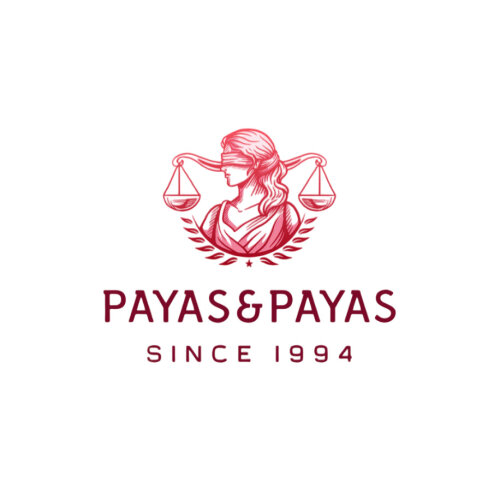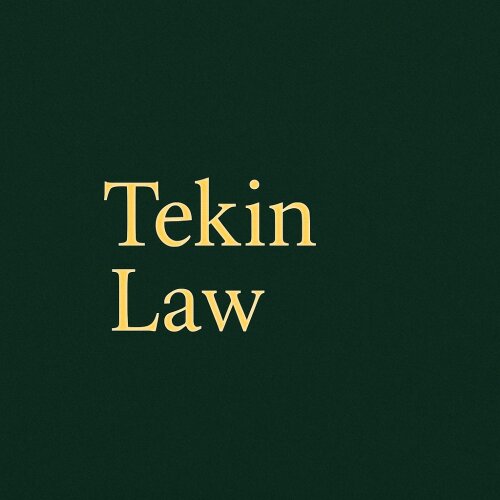Best Private Equity Lawyers in Turkey
Share your needs with us, get contacted by law firms.
Free. Takes 2 min.
Or refine your search by selecting a city:
List of the best lawyers in Turkey
Legal guides written by Tekin Law Firm:
- Arbitration in Turkey
About Private Equity Law in Turkey
Private Equity is a crucial part of Turkey’s dynamic investment landscape. The term refers to investment funds, generally organized as limited partnerships, that buy and restructure companies that are not publicly traded. In Turkey, private equity plays a vital role in supporting mid-sized businesses, startups, and established companies that require new capital, knowledge, or expansion opportunities. Turkish private equity law regulates how these investments are structured, managed, and exited, and provides a legal framework to protect investors and ensure compliance within the country’s business environment.
Why You May Need a Lawyer
Engaging in private equity transactions in Turkey often involves complex financial and legal considerations. A specialized private equity lawyer can help in various situations, such as:
- Structuring and negotiating private equity funds and investment agreements
- Conducting legal due diligence on target companies
- Ensuring compliance with Turkish regulations and cross-border rules
- Drafting and reviewing shareholder agreements
- Assisting with mergers, acquisitions, or exits from investments
- Answering regulatory questions regarding the Capital Markets Board and Banking Regulation and Supervision Agency
- Providing insight into tax implications and incentives
- Resolving disputes among investors or with founders and management
- Assisting foreign investors in navigating market entry strategies
Legal professionals can help you minimize risks, understand obligations, and optimize the outcome of your investment strategies in Turkey.
Local Laws Overview
Turkey has adopted various laws and regulatory measures governing private equity activities. The most relevant local laws and regulations include:
- Capital Markets Law No. 6362 - The foundation of Turkish capital market regulations that covers the operation of investment funds, including venture capital and private equity funds.
- Communiqué on Venture Capital Investment Funds and Private Equity Investment Funds - Issued by the Capital Markets Board, this regulation sets the standards, registration requirements, and operational guidelines for such funds.
- Turkish Commercial Code - Outlines rules for establishing and operating different types of companies, mergers and acquisitions, and shareholder rights.
- Foreign Direct Investment Law - Governs and facilitates foreign investment in Turkey, ensuring equal treatment of domestic and foreign investors.
- Tax Legislation - Involves corporate tax, stamp duty, withholding taxes, and applicable incentives for investment funds and portfolio companies.
- Competition Law - Mandates merger clearances and addresses anti-competition concerns in transactions.
Understanding these regulations is key to any successful private equity investment in Turkey.
Frequently Asked Questions
What is private equity in the context of Turkey?
Private equity refers to investments in private, non-listed Turkish companies through the acquisition of shares or assets. These investments are usually made by funds or institutional investors seeking significant growth and value creation.
Are there any restrictions on foreign private equity funds investing in Turkey?
Turkey encourages foreign investment. Generally, there are no substantial restrictions on foreign funds investing in Turkish companies, apart from specific sectors subject to additional regulation or national security considerations.
How are private equity funds formed in Turkey?
Private equity funds are typically structured as investment funds regulated by the Capital Markets Board. They must be managed by licensed portfolio management companies and adhere to specific formation, operation, and reporting standards.
What is the role of the Capital Markets Board in private equity?
The Capital Markets Board (SPK) supervises the formation, operation, and management of private equity funds. It also registers funds and ensures compliance with investor protection provisions and transparency requirements.
Is due diligence mandatory in private equity transactions?
Legal and financial due diligence are standard practice, though not mandated by law. They are essential for uncovering risks, assessing the value of the target, and confirming compliance with legal and regulatory obligations.
What are typical exit options for private equity investors in Turkey?
Popular exit options include initial public offerings (IPOs), sale of stakes to strategic or financial buyers, secondary buyouts, or trade sales to local or international companies.
Are there any tax advantages for private equity investments?
Turkey offers certain tax incentives for private equity investments, such as exemptions or reductions in withholding taxes, and special provisions for venture capital investment trusts, subject to eligibility and compliance.
What is the minimum investment requirement for private equity funds in Turkey?
The minimum investment requirement is set by the Capital Markets Board and may vary depending on the type of fund and investor category. Standards can change, so it is important to check the latest regulations.
How long does it typically take to close a private equity transaction in Turkey?
The completion timeline can vary, but private equity deals in Turkey commonly take between two and six months from initial negotiations through to closing, depending on the size and complexity of the deal.
Can disputes arising from private equity deals be resolved through arbitration?
Yes, arbitration clauses are common in private equity agreements, especially where international investors are involved. Arbitration provides an efficient and neutral forum for resolving commercial disputes.
Additional Resources
If you are seeking legal advice or more information about private equity in Turkey, the following are useful resources:
- Capital Markets Board of Turkey (SPK) - Regulates investment funds and provides regulatory guidance
- Investment Office of the Presidency of the Republic of Turkey - Supports foreign investors with information and incentives
- Turkish Private Equity and Venture Capital Association - Provides industry insights and promotes best practices
- Ministry of Trade - Information on foreign investment, company establishment, and operational regulations
- Local law firms specializing in M&A and private equity transactions
Next Steps
If you wish to proceed with private equity investments or require legal support in Turkey, follow these steps:
- Identify your legal needs, such as fund formation, transaction support, or compliance advice
- Contact a specialized lawyer or law firm experienced in Turkish private equity law
- Prepare relevant documents about your investment, business plan, or objectives for your initial consultation
- Discuss potential regulatory requirements, risks, and opportunities with your lawyer
- Follow your legal adviser’s guidance throughout negotiations, due diligence, and paperwork
- Always keep communication lines open for updates on legal, tax, or market changes affecting your investment
Navigating the Turkish private equity landscape is achievable with the right legal support, ensuring your investment proceeds safely and successfully.
Lawzana helps you find the best lawyers and law firms in Turkey through a curated and pre-screened list of qualified legal professionals. Our platform offers rankings and detailed profiles of attorneys and law firms, allowing you to compare based on practice areas, including Private Equity, experience, and client feedback.
Each profile includes a description of the firm's areas of practice, client reviews, team members and partners, year of establishment, spoken languages, office locations, contact information, social media presence, and any published articles or resources. Most firms on our platform speak English and are experienced in both local and international legal matters.
Get a quote from top-rated law firms in Turkey — quickly, securely, and without unnecessary hassle.
Disclaimer:
The information provided on this page is for general informational purposes only and does not constitute legal advice. While we strive to ensure the accuracy and relevance of the content, legal information may change over time, and interpretations of the law can vary. You should always consult with a qualified legal professional for advice specific to your situation.
We disclaim all liability for actions taken or not taken based on the content of this page. If you believe any information is incorrect or outdated, please contact us, and we will review and update it where appropriate.
Browse private equity law firms by city in Turkey
Refine your search by selecting a city.

















